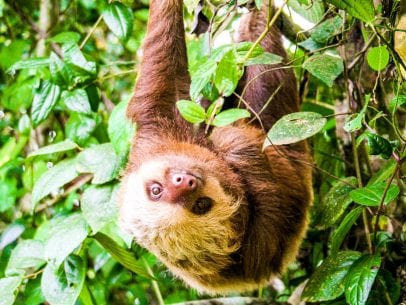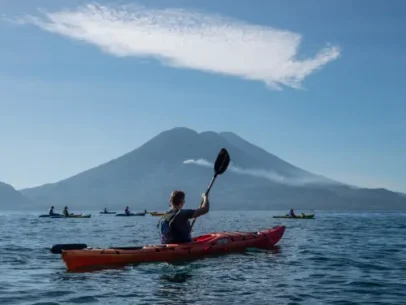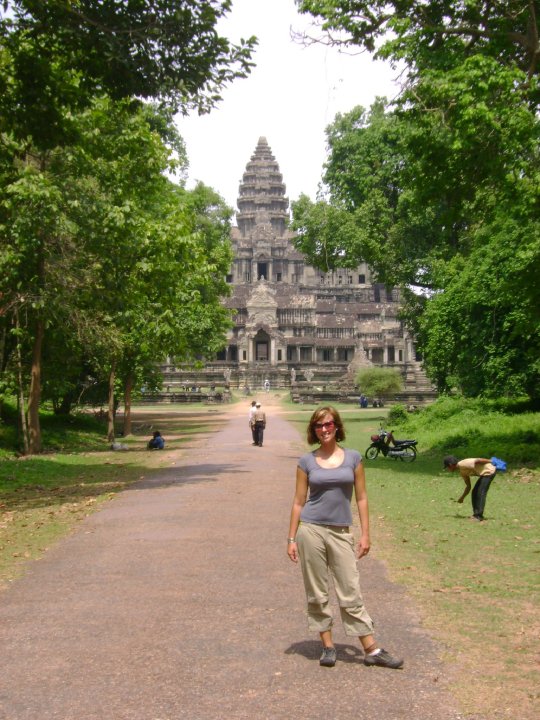
The Bird’s Word Blog
Positive Change in Southeast Asia Travel: Reflecting on Ethical Tourism

Adventure Specialist Victoria Odinet reflects on her experiences in Southeast Asia and improvements since her travels.
Southeast Asia has captured the imagination of travelers for many decades. It still continues to be a favorite region for exploration and for finding transformative experiences. The region has a deep cultural heritage, stunning landscapes, and rich traditions that captivate visitors. In 2008, I had the privilege of exploring this enchanting region, traveling through Vietnam, Laos, Cambodia and Thailand for three months. My trip included incredible experiences with local people, and I was impressed by the positive impacts of tourism on the communities that I visited.
Reflecting on my Travels Years Later
Now, as I look back on those adventures, it strikes me that my wonderful memories are also interspersed with the recollection of experiences that wouldn’t pass muster according to the responsible tourism standards that have emerged in the region today. It is gratifying to observe the positive changes that have taken place in various aspects of tourism in Southeast Asia since that trip in 2008. These changes are a testament to the power of awareness and the growing commitment to ethical considerations by travelers and local communities. Here are some examples.
Elephant Activities: Exploitation to Sanctuary
One of the most significant transformations I’ve witnessed is in the treatment of elephants. In the past, riding elephants was a popular tourist activity. Elephant parks would also forcibly train elephants to paint pictures and perform tricks using painful and harmful techniques that hurt these magnificent creatures. Thankfully, increasing awareness of the physical and psychological harm of these tourist activities on elephants has led to the rise of elephant sanctuaries. These sanctuaries offer homes to elephants that used to work with tourists under painful conditions, and they prioritize the well-being of elephants. Here, the elephants live in more natural and humane conditions while visitors can still observe and interact gently and responsibly with the animals.
Tailors in Hoi An: Nighttime Rush to Daytime Excellence
Hoi An, Vietnam, is home to a vibrant custom, tailormade clothing industry. It was once famous for offering overnight custom tailoring services. This often led to particularly exhausted garment workers and questionable labor conditions. Shopowners have now collectively shifted the expectations of travelers so that most clothing is produced in about two days, allowing for daytime instead of overnight work.
However, it is worth noting that the custom tailoring industry in Hoi An has also grown increasingly competitive in recent years, with approximately ten times more tailors in town now than when I first visited. This competitive marketplace puts pricing pressure on producers and motivates some business owners to offer “express service.” The rise of Internet order-taking has complicated the industry, too. Many visitors seek the lowest price among several shops, turning fair pay into the newest ethical consideration in Hoi An. From my perspective, I suggest that as long as travelers feel like they are getting a reasonable deal, they skip the hardnosed haggling.
Water Bottles: Single Use to Sustainable Alternatives
The abundance of single-use plastic water bottles in Southeast Asia used to be a common sight. The region was notorious among travel destinations for having a particular glut of plastic trash. However, I’ve been thrilled to see how many more environmentally conscious alternatives have emerged. Many eco-lodges now provide on-site water purification and bottling in reusable containers. An increasing number of tour operators and activity providers provide refill stations throughout the day, making it easy for travelers to carry their own reusable bottles. This move toward sustainability reduces plastic waste, promotes responsible tourism, and educates tourism workers about the importance of reducing their own plastic waste at home.
Traveler Interest: Overtourism to Sustainable Solutions
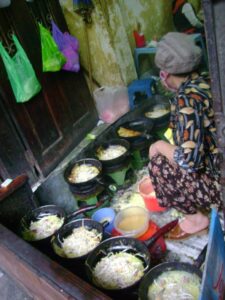 Communities in Southeast Asia have long sought to benefit from the interest of tourists. Yet, like many tourism hot spots around the world, too much interest in some really special places has caused environmental and social problems with overtourism.
Communities in Southeast Asia have long sought to benefit from the interest of tourists. Yet, like many tourism hot spots around the world, too much interest in some really special places has caused environmental and social problems with overtourism.
For example, the stunning beach and lagoon at Maya Bay on Thailand’s Koh Phi Phi was featured in Leonardo DiCaprio’s movie “The Beach” in the year 2000 and became a must-visit spot for people seeking the perfect photo of paradise. Over the next fifteen years or so, the thousands of daily visitors and their boats inflicted so much damage to the beach and reef of Maya Bay that park rangers and conservationists worried that the local populations of coral and reef sharks would die out. This story has an encouraging ending, though, because rangers decided to close Maya Bay for about four years to restore the habitat. Now that it has reopened, boats have to dock on the back side of the island, visitors can only wade up to knee-deep, and beach stays are limited to sixty minutes. All visitors are charged a conservation fee. Through proactive intervention, the beautiful beach and its sensitive ecosystem have gotten a chance to recover.
The city of Siem Reap, home to the temple ruins of Angkor Wat, also has well-known overtourism challenges. Although about two million people visit Angkor Wat every year, a fraction of those people will explore the country’s other incredible sights. Meanwhile, the volume of tourists has led to a water shortage in Siem Reap, and the bas relief carvings on the temples are degrading from tourists’ touch. Before the COVID-19 pandemic, the number of tourists overloaded the town’s waste management infrastructure, and the Siem Reap River was filled with trash. These overtourism woes spurred government improvement efforts. Upgrading roads, installing more bike paths, and expanding sewage systems have not only made the city more visitor-friendly but also reduced visitors’ environmental impact. Officials are also working hard to promote longer visits to encourage a deeper connection with the local culture and contribute to a more sustainable economy.
Progress, but Challenges Remain
While we’ve seen significant progress in many areas, there is still work to do to ensure ethical and sustainable tourism continues to expand in Southeast Asia. Here are a few particular areas that I would like to see change through traveler and tour operator choices and advocacy:
Karen Long Neck Tribes: Despite increased awareness about cultural sensitivity and human rights, the Karen Long Neck Tribes in northern Thailand still face restrictions on their movement and autonomy. Advocacy for their rights and livelihoods remains essential.
Questionable Tiger Petting Operations: While some tiger petting operations have closed, there are still reports of unethical practices in Thailand. Travelers should exercise caution and support initiatives that prioritize the welfare of all animals.
Sustainable Transportation: The region needs to continue investing in sustainable transportation options to reduce the environmental impact of tourism. Encouraging the use of bicycles, electric vehicles, and efficient public transport can help mitigate congestion and pollution.
Supporting Local Communities: Travelers can play a vital role in promoting positive change by supporting local businesses and communities. Initiatives that empower local artisans, promote fair trade, and invest in community-based tourism can have a lasting positive impact.
Environmental Conservation: Conservation efforts should remain a top priority. Protecting delicate ecosystems, reducing plastic waste, and promoting responsible wildlife encounters should be central to any tourism strategy.
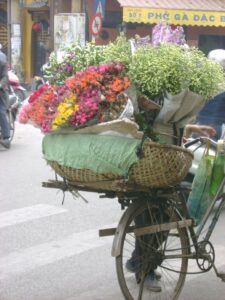 Having a Positive Impact Moving Forward
Having a Positive Impact Moving Forward
Reflecting on my journeys in Southeast Asia, I am heartened by the positive changes that have taken place, thanks to increased awareness and ethical considerations among travelers, tour operators, and local communities. The shift from exploitative practices to more
However, the journey towards ethical and sustainable tourism is ongoing. It requires the continued dedication of travelers, trip planners, operators like Journeys International, local governments, and communities. By supporting responsible travel, advocating for cultural preservation, and respecting the environment, we can ensure that Southeast Asia remains a beautiful and welcoming destination for generations to come.
As travelers, let’s not only enjoy the beauty of Southeast Asia but also strive to leave a positive impact on the places we visit. Together, we can be stewards of change, preserving the wonders of this region while promoting the well-being of its people and wildlife.
About Journeys International
Journeys is an eco-friendly and culturally immersive outbound adventure tour operator and travel consulting company with 45+ years of travel industry experience and a growing network of trusted local tour guides around the world. We specialize in authentic, immersive, and experiential travel and learning for single travelers, couples, families, and small groups. Travelers know Journeys for its commitment to core values, respect for natural spaces, and the ability to facilitate worldwide trips that nurture human and cross-cultural connections. Let our expert Adventure Specialists book you on one of our scheduled Rare Journeys or arrange custom travel plans for you to #adventuredeeper into the world! Explore www.journeysinternational.com or call 800-255-8735 for more information.
Related Adventures
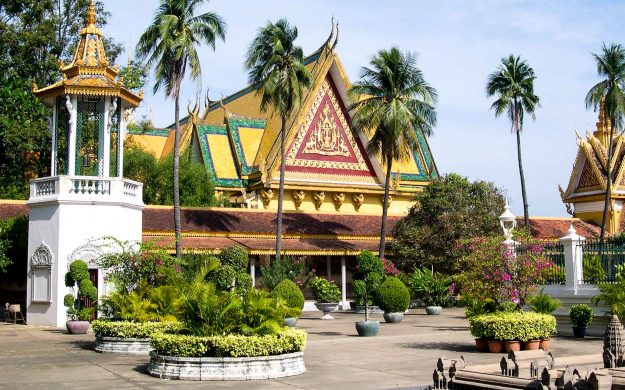
Captivating Cambodia
Discover the enduring wonders of Angkor Wat and the unfailing hospitality of Buddhist people successfully emerging from a tragic twentieth-century history.
From $2685 Per Person
Gentle
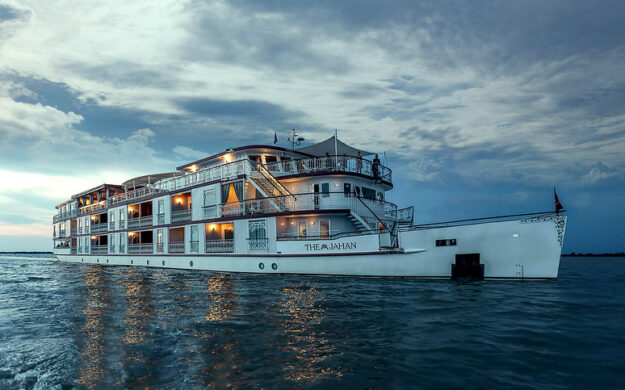
Mekong Luxury River Cruise
Your Mekong adventure begins with a visit to bustling Saigon, where you spend time exploring the city and visiting the historical Cu Chi Tunnels. From here, board a luxurious boat and cruise along the Mekong where you get insight into the lives of the people who live along the banks and on the river. End in Siem Reap, where you visit the ancient ruins of the Angkor period. You'll travel on the luxurious Jahan Boat, which combines old-fashioned elegance with modern comfort.
From $5980 Per Person
Gentle
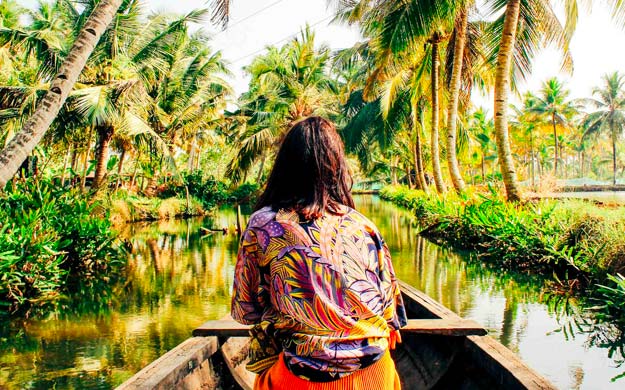
Design an adventure with Journeys International!
With over 40 years of experience, we create experiences that match your goals.
Start Planning